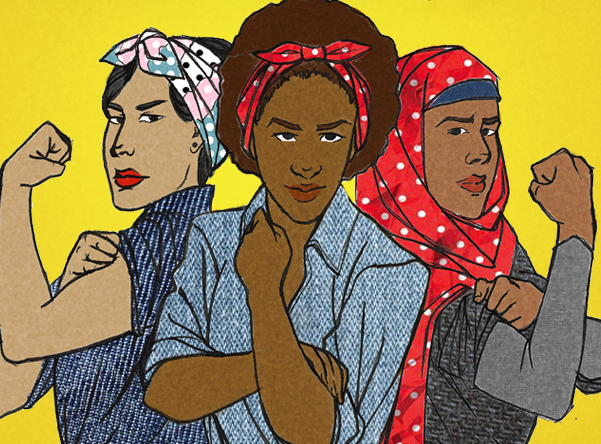
Writing is more than just the presence of words on a page. As much as writing is a repository of knowledge, it is also a living, breathing thing capable of healing and reconstructing. The words in a book do not merely exist in the static moment of a sentence; but they can also reshape and revitalize the lives of those who craft and read them. In a specifically South African context, writing is a dynamic revolutionary and restorative tool. Written works by South African feminists tell of the past as they breathe life into a better future. These writers are doctors in their own right; mending parts of their own lives and those within a larger collective, using their words to stitch together what has been torn open. We should regard these individuals in the same way that we do doctors; they have the capacity to save lives with the work they do, to stitch together broken pieces intricately and profoundly.
We need to look at writing as something revolutionary not just because it challenges ideas, but because it has the power to radically alter our own life and the lives of others. We need to see more spaces organized with the intention of bringing together writers and works that have the power to heal. The history of South African feminist activism speaks of efforts to rebuild and reclaim. It is critical that there are spaces within South Africa (and abroad) that support the sharing of radical and restorative texts. We should be able to call a collective of South African feminist writers a conference of medical professionals. While they may not perform surgeries or shrink tumors, their works have the power to ease mind, heart, and soul. I argue that collections of pieces such as Feminism Is: South Africans Speak Their Truth are medical journals. We need more books like these that foster healing writing and support restorative conversations between authors and readers. We need more conferences, discussions, and forums that acknowledge and actively promote the life-saving work that feminist writers do. When we move beyond just looking at physical health, we open ourselves up to an intellectual activist world rife with possibility.
Writing is a tool for both its creator and its consumer. South African feminists who retell their stories, craft feminist futures, or simply muse on what it means to be who they are may very well be healing themselves while they work. Their writing also serves to help others move past what has wounded them. Collections of South African feminist writing, voices amplified and in conversation with each other, are healing grounds for many people. These books, or medical journals as I’ll call them, serve as accessible and powerful points within a larger conversation. They lay the groundwork not only for a restored feminist South African future, but for other futures as well. It is naive to assume that writing only serves to inform others. It is also crucial to understand that feminist writing can be transformative and life-saving for anyone who interacts with it.
This is a case to shift the conversation on South African feminist writing, which should not just concern itself with the words on a page. Rather we should look at the radical potential of written pieces crafted by South African feminists. There is a great healing power in the books, poems, sentences, and words crafted by South African feminist authors. This is a sales pitch for a medical journal composed of works by South African feminists, whose works redefine both activism and healing. Most of all, this is a thank you note to them, those doctors of the mind, heart, and soul, whose works have helped me and others in the continuous process of healing.
What happens when we start to understand doctors as not just those who help others physically? We open the door to a world where we can decolonize our minds and heal as a collective, inspired and strengthened by the lives and stories of powerful people. Moving beyond that, we begin to put more stock into the sharing of lived experience and collective healing. Giving weight and validity to South African feminist writers allows the authors and those touched by their work the opportunity to grow and shape whatever future they see fit.
(Photo Credit: BooksLive)
